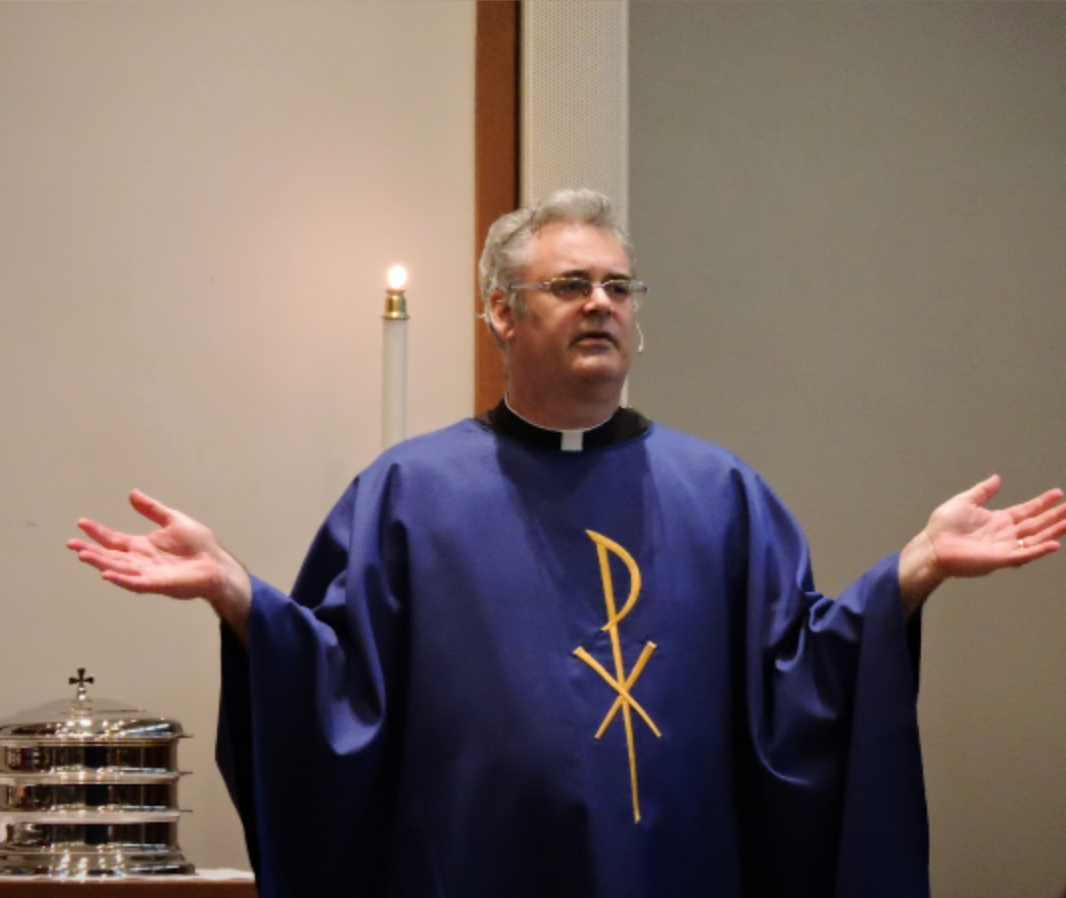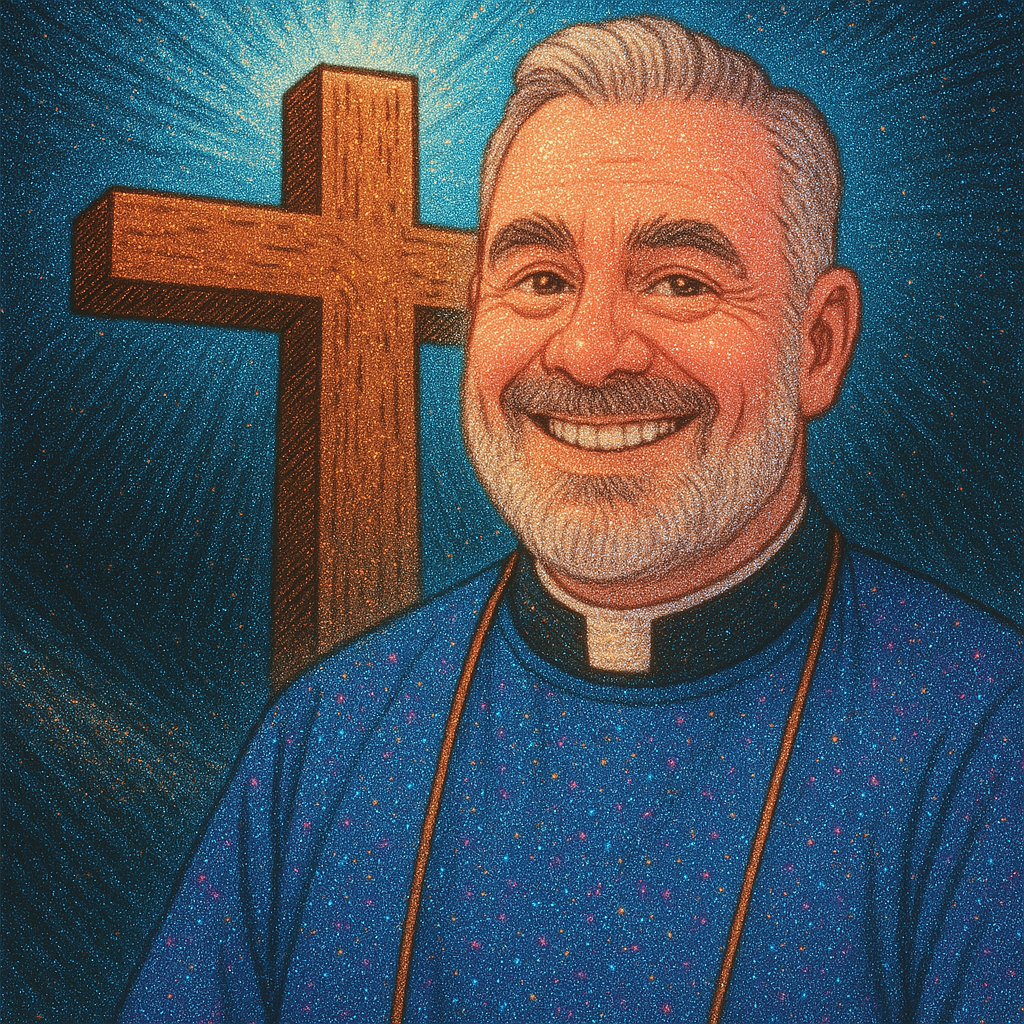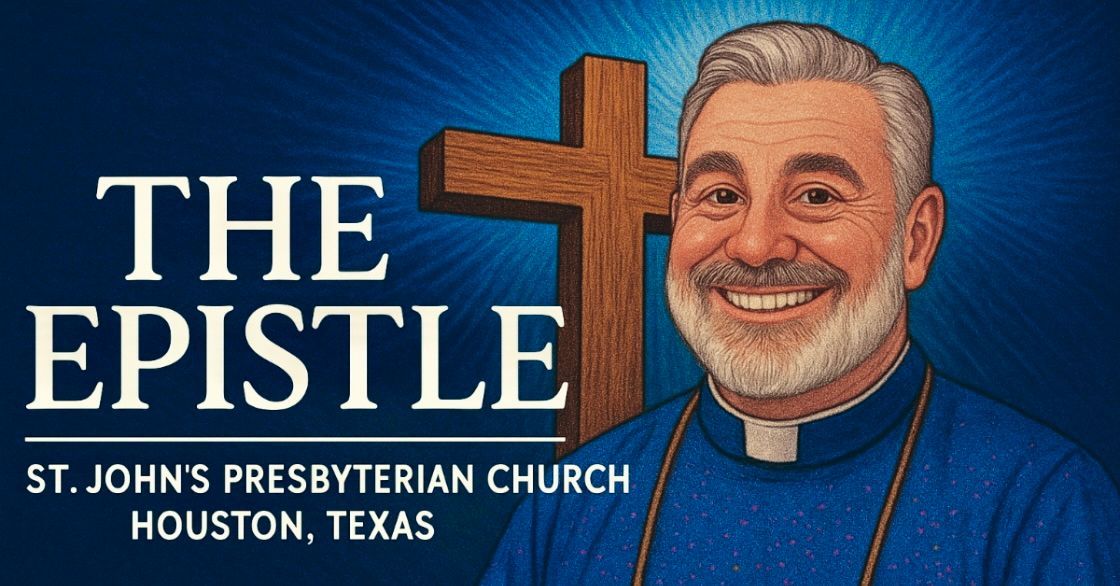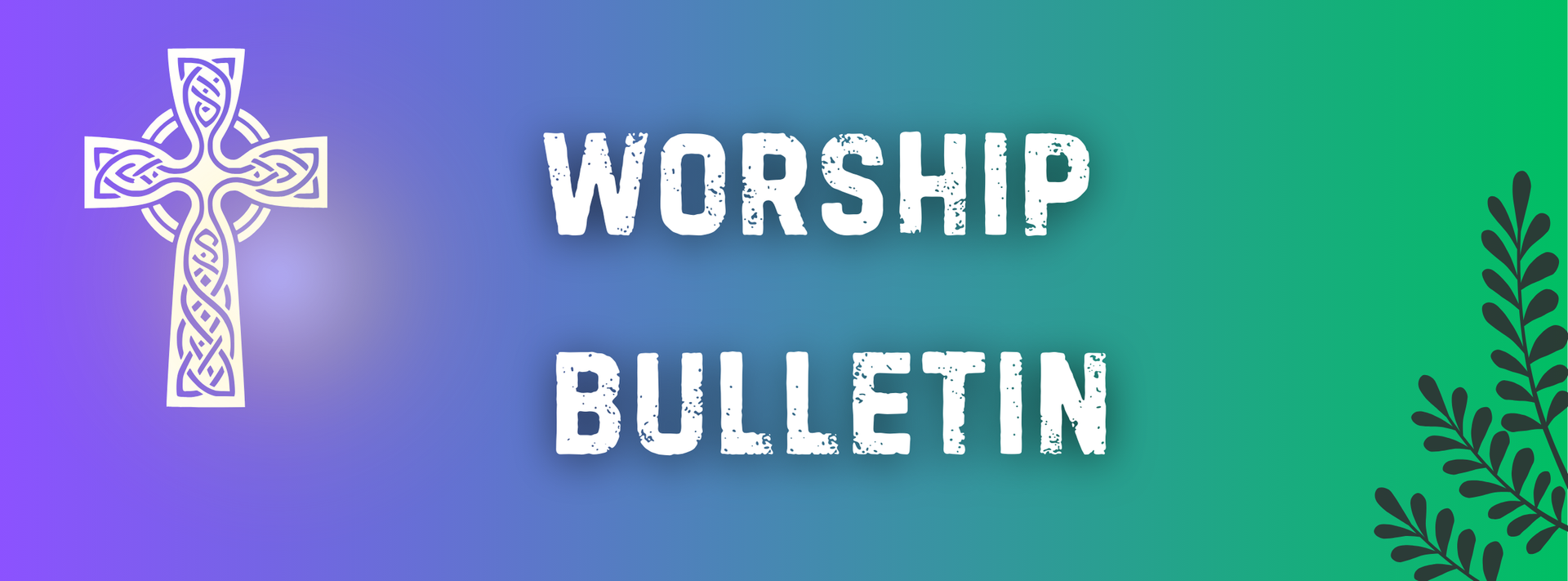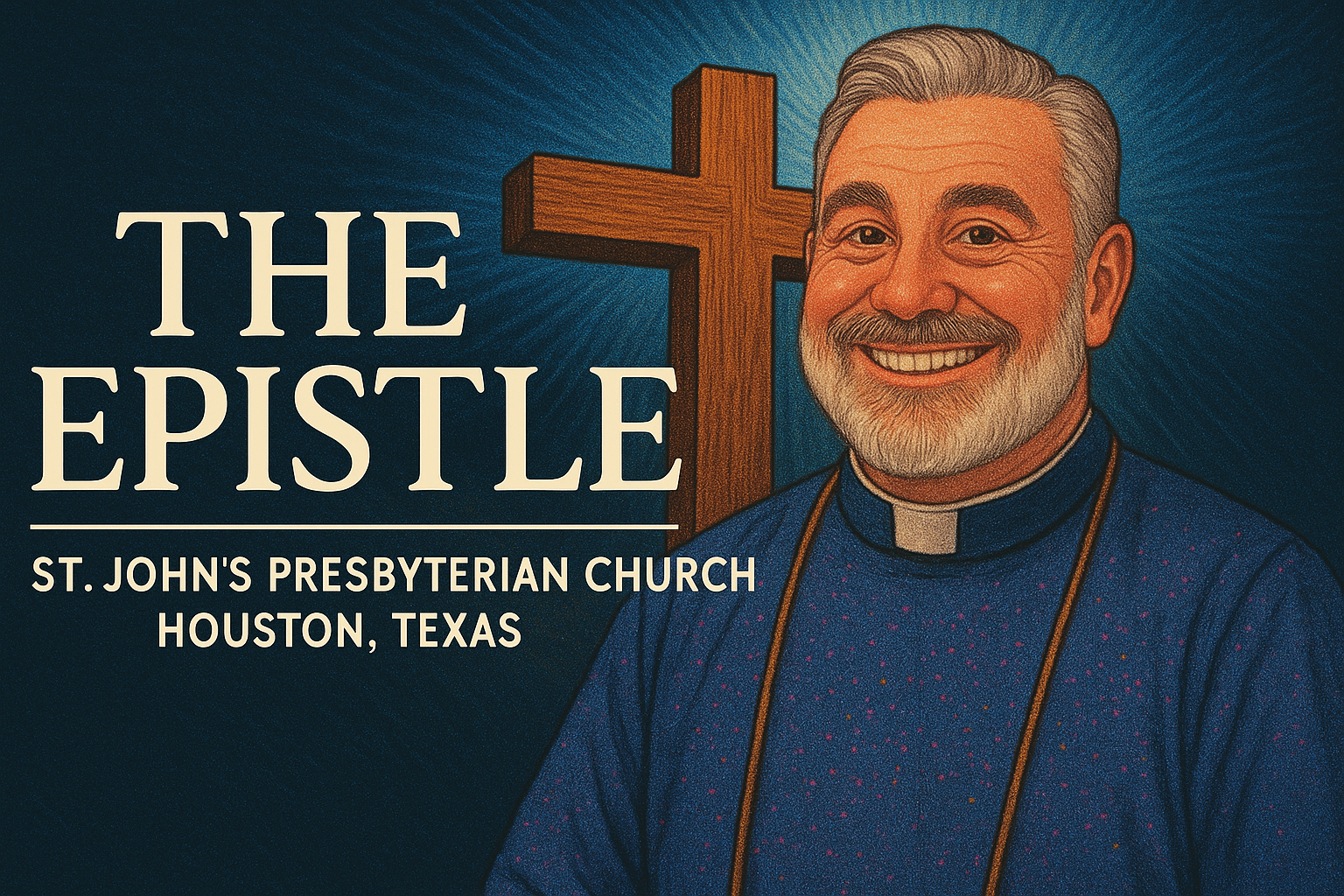Looking Ahead to 2026: Why These Sermon Series?
I've been working on sermon planning for 2026, and I wanted to share my thinking with you before we get there. Not because I need approval for what I'm preaching (though your feedback always helps), but because these series emerged from watching what's happening in our community and listening to the questions you're asking.
Here's where my head and heart are as I look toward next year.
Starting with Wisdom's Holy Fools (January-February)
Every January, we're told to get organized, set goals, make plans. Start the year right. Be intentional. I get it. But Scripture has this habit of starting stories with the people you'd never pick for your strategic planning committee.
God chose a liar named Jacob to father a nation. A stuttering murderer named Moses to lead the exodus. A sulking prophet named Jonah who succeeded despite trying his hardest to fail. A woman with five marriages and questionable theology to be Jesus' first evangelist to the Gentiles.
These aren't inspirational stories about overcoming your flaws to achieve greatness. They're disruptive stories about God accomplishing kingdom purposes through people who had no business being qualified. The more time I spend with these characters, the more I wonder if God prefers working through holy fools specifically because they can't take credit for what happens.
At St. John's, we're a church of 200 people in a city full of megachurches. We're not impressive by conventional standards. Maybe that's exactly where we need to start the year, remembering that God's wisdom looks foolish by the world's metrics, and divine power shows up strongest in weak places.
Moving into Wilderness Sabbath (Lent)
Lent always feels like it should be about giving something up or taking something on. Spiritual disciplines. Self-improvement. Getting closer to God through effort.
But when I read the wilderness stories in Scripture, I keep seeing something different. The wilderness isn't a program you implement. It's a place you get driven to when your usual strategies stop working.
Hagar didn't choose the desert. She got abandoned there and discovered God sees her. The Israelites didn't volunteer for forty years of wandering. They learned daily dependence through manna that wouldn't keep. Jesus didn't fast for forty days because a spiritual director recommended it. The Spirit drove him there to face what needed facing before ministry began.
I'm not trying to romanticize hard times. The wilderness strips you bare, and that stripping hurts. But these stories suggest God meets people in empty places in ways that don't happen in comfortable ones. Loss becomes teacher. Hunger becomes prayer. Silence becomes voice.
You can experience Lent and Holy Week through
intimate dialogue with the Holy Spirit in a transformative devotional that invites you into the sacred journey from wilderness to resurrection. Through fourteen carefully crafted conversations, you'll discover how divine love speaks into our deepest questions, doubts, and longings.
Ultimately, Lent is about transformation. I wrote a few fictions stories that illustrate this.
Check them out here.
This Lent, I want us to sit with that reality instead of trying to fix it with better spiritual practices. Sometimes the wilderness is the practice.
Exploding into Resurrection Disruptions (Easter Season)
Easter at most churches feels like the grand finale. Jesus rose. Death is conquered. Cue the trumpets and the lilies, then move on with regular programming.
But when you actually read the resurrection accounts, they're weird. Jesus shows up in locked rooms. He cooks breakfast. He invites Thomas to stick fingers in wounds. He appears to Mary in a garden and she thinks he's the gardener. These aren't triumphant victory marches. They're strange, tender, disruptive encounters with someone who refuses to stay dead and keeps breaking into places we've locked up.
Resurrection power isn't about pretending everything's fine now. It's about God breathing life into the dead places we've learned to accept. The broken things we've stopped expecting to heal. The losses we thought were final. The relationships we buried. The hopes we gave up on.
I want to spend eight weeks after Easter following the risen Christ through these disrupting appearances, because I think we need permission to believe God still does this. Still shows up uninvited. Still breathes life where we see only death. Still refuses to let our locked doors keep him out.
Wandering Through Parables of the Kingdom (Summer)
Summer is when people travel, when schedules loosen, when we're not quite as programmed. It feels like the right season for parables, which are Jesus' way of telling stories that don't preach easily.
These aren't nice moral tales with clear applications. They're provocations. A generous vineyard owner who offends everybody. A dishonest manager held up as an example. Midnight bread-beggars who won't stop knocking. Party crashers welcomed in while the invited guests get locked out.
I have written
several books based on Jesus' parables. I've been preaching for decades, and these stories still make me uncomfortable. They turn assumptions upside down. They reveal a kingdom operating on economics stranger and more generous than anything we've built. They leave you wondering if you've understood grace at all.
That discomfort feels important. Our culture (and often our churches) reduce everything to formulas and principles. Do X, get Y. Follow these steps. Apply these techniques. But Jesus told stories that resist being turned into programs. Stories that keep surprising you even after you've heard them a hundred times.
Summer seems like the right time to sit with that kind of expansive mystery, when we're not rushing through to the next big church season.
Finding Freedom in Letters from Prison (Late Summer)
Paul wrote his freest words from behind bars. That fact has always arrested me (pun intended). Philippians overflows with joy from a cell. Ephesians explores cosmic mysteries while chained to a guard. Colossians instructs churches on full living while the author can't leave a room. Philemon addresses slavery while Paul himself is enslaved.
These aren't escape fantasies or grit-your-teeth-and-endure pep talks. They're letters from someone who discovered that the worst Rome could do couldn't touch what mattered most. And that discovery changes everything about how we face our own prisons.
We all have them. Circumstances that limit us. Health that restricts us. Finances that confine us. Relationships that bind us. Pasts that hold us. Futures that terrify us. The question isn't whether we're imprisoned. The question is whether we can find the freedom Paul found even when the cell door stays locked.
I want us wrestling with these letters as summer turns to fall, as vacation freedom gives way to regular routine. Because maybe real freedom isn't about changing circumstances. Maybe it's about discovering what circumstances can't touch.
Facing Generous Trouble (Stewardship Season)
Every fall, churches have to talk about money. Most do it apologetically. "We hate to bring this up, but..." Or manipulatively, with guilt and obligation. Or with slick marketing about return on investment.
I'd rather be honest.
Kingdom economics will mess up your budget. Biblical generosity interrupts careful financial planning. It introduces categories that don't fit on spreadsheets and suggests that God's economy operates on different math.
Jubilee years reset everything. Widows give last pennies. Rich young rulers can't let go and walk away sad. Zacchaeus throws parties that cost him everything and somehow gains more than he loses. First become last. Least become greatest. The one who loses life finds it.
This isn't about guilting anyone into bigger pledges. It's about wrestling with stories that suggest abundance flows from surrender, treasure shows up where we bury it in kingdom soil, and generosity creates the kind of trouble you actually want to be in.
Our church understands this better than most. You've proven it through years of supporting PCHAS families, feeding neighbors through BIM, partnering with Uganda orphanages, maintaining our community garden. But I think we need to keep wrestling with the theological foundations under that generosity. Keep letting these stories challenge our assumptions about what we can afford and what we can't afford not to do.
Ending with Waiting in the Dark (Advent)
Advent is supposed to be about hope and anticipation and joy. And it is. But not the cheap version that skips over darkness to get to Christmas lights faster.
Real Advent sits with the darkness before light breaks. The barrenness before birth. The impossibility before the angel shows up. It walks with Sarah laughing at promises she's too old to believe. Mary saying yes to news that could get her killed. Elizabeth carrying hope in an age when hope seemed foolish. John leaping in a womb before birth, before any proof that angels told the truth.
This isn't triumph. It's honest stories of people waiting in circumstances that make waiting feel stupid. Until God does what only God can do and everything impossible becomes incarnate in a feeding trough.
I think we need Advent that tells the truth about waiting. About how long it takes. How dark it gets. How foolish faith feels when nothing's changing. Because that's where most of us actually live, and we need company there more than we need another cheerful countdown to Christmas.
Speaking of Advent, I have some
Bible study books and fiction books based on Advent themes for your review on Amazon.
Why I'm Sharing This Now
I don't usually publish sermon planning this far in advance. Plans change. Life interrupts. The Spirit leads in unexpected directions.
But these seven series feel connected in ways I want you to see. They move through a year that starts with holy fools, passes through wilderness and resurrection, explores kingdom economics through parables and prison letters, challenges our financial assumptions, and ends with pregnant waiting in the dark.
That's not just a preaching calendar. It's a journey that takes seriously both the strangeness of Scripture and the realness of life. A journey that doesn't promise easy answers but does promise we'll wrestle with truth together.
I want to know what you think. Do these series resonate with where you are? Do they address questions you're asking? Are there angles I'm missing or emphases that need adjusting?
Email me at [pastor's email]. I'm genuinely interested in your feedback. Not because I'm taking a poll about what to preach. But because preaching works best when it emerges from conversation with the community that will hear it.
We've got a few more months before Wisdom's Holy Fools begins. Plenty of time to think, pray, and talk about where God might be leading us through these stories.
Thanks for being the kind of community that lets a pastor wrestle with Scripture and share that wrestling out loud. Not every church makes space for that kind of honest engagement. You do, and it makes all the difference.
See you Sunday,
Pastor Jon
Questions? Thoughts? Pushback? Email Pastor Jon at
office.sjpc@gmail.com
or call the church office at 713-723-6262.
